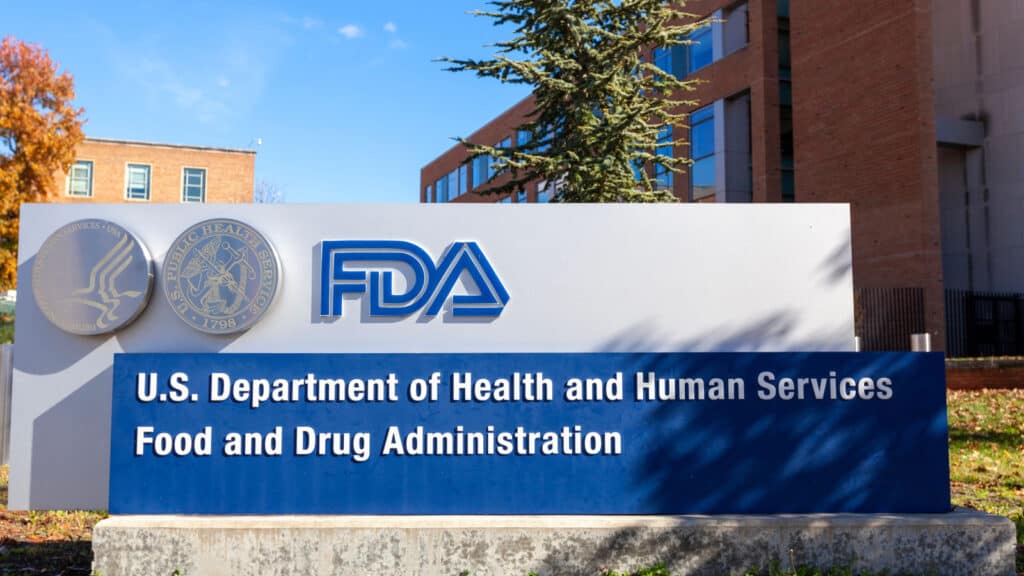Your Daily Diet Soda Habit Could Be a Silent Heart Attack or Stroke Trigger
Erythritol is a sugar alcohol naturally found in small amounts in fruits such as grapes and melons. However, commercial erythritol is synthesized through industrial fermentation, typically using corn or wheat starch. It is approximately 60% to 80% as sweet as sucrose and has almost no calories, making it a go-to additive in “zero-calorie,” “keto,” and “sugar-free” products, including:
- Diet sodas and flavored waters
- Sugar-free baked goods
- Protein bars and shakes
- Low-carb ice creams
- Chewing gum and mints
- Oral health products like toothpaste and mouthwash
Why Is It So Popular?

Its popularity soared with the rise of the ketogenic diet and the broader low-carb movement. Food manufacturers favor erythritol due to its clean, sweet taste, low glycemic index, and minimal gastrointestinal upset compared to other sugar alcohols.
Alarming Study Connects Erythritol with Cardiovascular Events

A study published in Nature Medicine in 2023 shook the health and nutrition world. Conducted by researchers at the Cleveland Clinic, this peer-reviewed study analyzed blood samples from over 4,000 people across the U.S. and Europe. The researchers found that individuals with the highest levels of erythritol in their blood had twice the risk of experiencing a stroke or heart attack within three years compared to those with lower levels.
Key Takeaways from the Research:
- Elevated erythritol levels were strongly associated with major adverse cardiovascular events (MACE), including heart attacks, strokes, and death.
- Erythritol appeared to promote platelet activation, a process that can lead to blood clots.
- The study involved stable patients undergoing cardiac evaluations, not just those in acute care, indicating broader implications.
How Erythritol May Contribute to Blood Clot Formation

The study revealed that erythritol boosts platelet reactivity. When platelets become overly sensitive, they clump together more easily, forming blood clots that can travel to the heart or brain. In lab and animal models, erythritol significantly increased clot formation.
Mechanism:
- Ingested erythritol enters the bloodstream quickly.
- Blood levels of erythritol remain elevated for up to two days after a single sweetened drink.
- During that time, the risk of clot formation may increase due to hyperactive platelets.
Who Is Most at Risk?

People with existing cardiovascular disease, diabetes, or risk factors like high blood pressure, obesity, or smoking are most vulnerable. Many of these individuals use erythritol-containing products specifically to manage their weight or blood sugar, ironically increasing their cardiovascular risk in the process.
Example at-risk groups include:
- Individuals with type 2 diabetes using keto-friendly sweeteners
- Seniors following low-sugar diets for heart health
- Patients with prior stroke or myocardial infarction
- People undergoing bariatric surgery or other weight-loss programs
The FDA’s Position and Regulatory Oversight

Erythritol has GRAS (Generally Recognized as Safe) status from the U.S. Food and Drug Administration (FDA). However, this designation was granted based on toxicology and gastrointestinal safety, not long-term cardiovascular outcomes. The FDA does not require pre-market approval for GRAS ingredients unless safety concerns emerge post-approval.
Currently, the FDA has not issued a warning or recall, but scientists are urging a reassessment in light of the new data. The European Food Safety Authority (EFSA) and other regulatory bodies are reviewing the findings.
Hidden Sources of Erythritol in Everyday Foods

Even people trying to avoid sweeteners may be consuming erythritol unknowingly due to unclear labeling. Watch for terms like:
- “Natural sweetener blend”
- “Sugar alcohols”
- “Zero-calorie sweetener”
- “Stevia blend” (often mixed with erythritol)
Common product categories with hidden erythritol:
- Packaged low-carb snacks
- “Healthy” chocolate or candy
- Sugar-free cough drops and lozenges
- Energy drinks labeled as “clean” or “natural”
The Marketing Gap: Why Consumers Are Misled

Many food companies market erythritol as “natural,” “diabetic-friendly,” and “gut-safe.” However, these claims are largely unregulated. The new data contradicts these marketing messages, particularly for individuals with elevated cardiovascular risk.
Key issues with marketing:
- “Natural” claims do not mean safe long-term.
- Associations with stevia or monk fruit disguise erythritol’s presence (more on these other sweeteners later)
- Keto and low-carb labels often imply healthfulness without scientific validation.
Safer Alternatives to Erythritol—Or Are They?

While the recent concerns about erythritol are troubling, it’s important to recognize that many dietitians and public health experts urge caution around all sugar substitutes—natural or artificial. Just because a product is marketed as a “better” or “plant-based” alternative doesn’t mean it’s been rigorously studied for long-term safety or metabolic effects.
Why Many Dietitians—and the World Health Organization—Are Skeptical

Registered dietitians frequently raise the following concerns about sugar alternatives:
- Lack of long-term human studies. Many substitutes like allulose and monk fruit extract are relatively new to the market and haven’t been tested over decades.
- Digestive issues. Sugar alcohols like xylitol and sorbitol can cause gas, bloating, and diarrhea, even in small amounts.
- Ultra-processed foods. Sweeteners are often added to foods that are highly processed, low in fiber, and lacking in nutrients.
- Disruption of appetite cues. Some research suggests that non-nutritive sweeteners (NNS) may interfere with hunger and satiety signals, potentially leading to overeating or metabolic dysfunction.
The WHO Weighs In

In fact, in 2023, the World Health Organization (WHO) issued a formal guideline advising against the use of non-sugar sweeteners for weight control or reducing the risk of noncommunicable diseases. The WHO cited “no long-term benefit in reducing body fat in adults or children” and noted the potential for increased risk of type 2 diabetes, cardiovascular diseases, and mortality with regular use of NNS like aspartame, sucralose, and yes—erythritol.
So, What’s the Better Approach?

Rather than jumping from one substitute to the next, many health professionals encourage a return to natural, mindful eating habits that emphasize real food over manufactured sweetness.
Here’s what dietitians recommend:
- Minimize all sweeteners, not just erythritol. Even “natural” or “zero-calorie” options can have downsides.
- Use real sugar sparingly when needed—especially in foods made at home. A small amount of cane sugar may be less harmful than a heavily processed low-calorie snack.
- Embrace naturally sweet foods like fruit, which also provide fiber, vitamins, and antioxidants.
- Retrain your palate to expect less sweetness. Over time, your cravings for sugary flavors can diminish dramatically.
- Read ingredient labels closely, even on products that claim to be healthy or keto-friendly. Hidden sweeteners are everywhere.
Expert Recommendations: Focus on Whole-Food Nutrition

The erythritol study is a wake-up call, but it’s not about just one ingredient. It’s part of a larger story about how heavily processed food—often disguised as “health food”—can harm us in subtle and long-term ways.
Health experts emphasize a whole-foods-based diet, rich in:
- Vegetables and fruits
- Lean proteins
- Whole grains
- Healthy fats like olive oil and nuts
If sweetness is desired, using small amounts of real sugar in the context of an otherwise nutrient-rich diet is unlikely to cause harm for most people.
Frequently Asked Questions (FAQs)

- Should I cut out all sweeteners? You don’t have to eliminate every trace of added sweetness, but reducing overall intake—whether from sugar or substitutes—is a smart move. Focus on minimizing sweetened processed foods and beverages.
- Are sugar substitutes better for weight loss? Not necessarily. While some can help reduce calorie intake, they may also trigger cravings, increase appetite, or reinforce dependence on sweet flavors. The bigger picture—your total diet and habits—matters more.
- Is fruit sugar (fructose) bad? Whole fruits contain fructose, but they also offer fiber, vitamins, and beneficial plant compounds. The problem arises with added fructose in processed foods, not natural sources like apples or berries.
- Are there any completely safe sugar substitutes? No substitute is completely without risk or controversy. The safest strategy, according to most health professionals, and echoed by the WHO, is to minimize your reliance on added sweetness altogether, regardless of the source.
Conclusion: Think Beyond the Label

The revelation about erythritol’s potential cardiovascular risks underscores a deeper problem in modern nutrition: the illusion that swapping one isolated ingredient for another will lead to better health.
Instead, the most powerful change we can make is to shift our overall eating pattern toward foods that are minimally processed, naturally nutrient-dense, and satisfying without added sweetness. A healthy diet is not built on substitutes—it’s built on real food, balance, and awareness.
As both the World Health Organization and leading dietitians suggest, the best solution isn’t a better sweetener. It’s a better relationship with food.
Ditching the Fizz: This is Why You Are Struggling To Overcome Soda Addiction

Soda has become the beverage of choice for many, providing a fizzy pick-me-up when thirst or fatigue strikes. However, beneath its bubbly facade lies a potential for addiction fueled by sugar and caffeine, which can significantly impact your health and well-being. Let’s explore why soda is so appealing, its addictive ingredients, and practical strategies to break free from its hold.
READ: Ditching the Fizz: This is Why You Are Struggling To Overcome Soda Addiction
Join Us

Join us on this empowering journey as we explore, celebrate, and elevate “her story.” The Queen Zone is not just a platform; it’s a community where women from all walks of life can come together, share their experiences, and inspire one another. Welcome to a space where the female experience takes center stage. Sign up for our newsletter so you don’t miss a thing, Queen!







